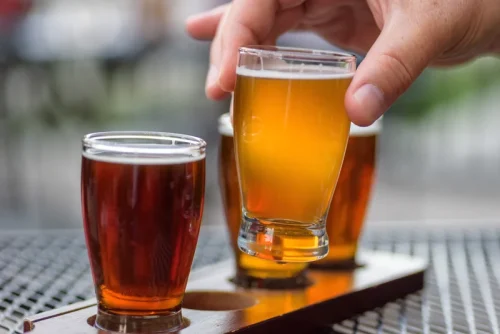Mindfulness and Meditation in Recovery

As people gain experience in recovery they still face the stresses of everyday life. Meditation techniques can be implemented in any type of addiction treatment program. Some of these treatments include inpatient rehab, outpatient addiction treatment programs, and continued aftercare treatment.
Other Proven Addiction Therapy Methods
Originating from various spiritual and religious traditions, it has evolved into a universally embraced method for enhancing personal well-being. In mantra meditation, you would select a particular word or phrase and repeat it. You can repeat the mantra loudly or quietly, and the repetition allows you to focus on the environment around you. It’s well-documented that judgment of emotions intensifies emotions. Fostering a nonjudgmental, compassionate approach toward yourself is essential to maintain sobriety.
Tips for a Helpful Meditation Experience
This is indeed a challenge, as MBIs with demonstrated efficacy in Stage II trials may fail to show effectiveness in Stage III and IV trials when delivered by community clinicians. Yet, work now needs to be done to understand the feasibility, acceptability, and impact of delivering MBIs in addiction treatment settings. Moving meditation involves practicing mindfulness while engaging in focused movement. You can practice in your own home or in a peaceful place outdoors, such as near a lake, or in a garden, park, or forest. Choose an activity you like doing such as walking, tai chi, or yoga.
Mindfulness Practices to Step Up Your Recovery

However, other potential mechanisms of mindfulness as a treatment for addiction have been identified in the literature and are discussed below. For instance, MORE participants are guided to engage in the “chocolate exercise”— an experiential mindfulness practice designed to increase awareness of automaticity and craving [6]. During this exercise, participants are instructed to hold a piece of chocolate close to their nose and lips and become mindful of the arising of craving as they refrain from eating the chocolate. During this exercise, a comparison is made between the urge to swallow the chocolate and craving for addictive substances. Participants are then guided to adopt a metacognitive stance toward their experience and deconstruct the craving into its constituent sensory, affective, and cognitive components, noticing how the craving subsides over time.
WISE MINDFULNESS

As this happens, start setting intentions for yourself as you meditate – such as resolving to let go of anger or working on being more patient. Keeping a steady and calm breath while meditating will help you focus on the present moment. https://ecosoberhouse.com/ Focusing on your breathing is an old technique used in meditation, one that can also be incorporated into other practices such as yoga. Beyond helping with reducing stress, meditation has also been shown to help boost a person’s mood.
function recaptchaOnloadCallback()
- By incorporating meditation into your recovery journey, you can empower yourself to make lasting changes and build a healthier, more fulfilling life.
- It brings you back to your body and the present moment, and allows you to live right here, right now.
- The purpose of this type of meditation is to develop inner peace and calm the mind.
- The authors call for higher quality RCTs to evaluate the effectiveness of MBIs for relapse prevention.
- In a RCT of MBRP among a heterogenous sample of individuals with various substance use disorders, increases in dispositional mindfulness facets like acceptance, awareness, and nonjudgment significantly mediated the effect of MBRP on decreasing craving following treatment [39].
- Stress and emotional turmoil are often major triggers for relapse, so having a tool to manage these factors can be a game-changer.
All meditation involves being mindful (or present in the moment), but mindfulness meditation emphasizes this. In mindfulness meditation, the person works to build his or her awareness of the current situation. Hazelden Betty Ford’s Thought for the Day offers daily meditations for people in recovery or affected by addiction to alcohol or other drugs. Browse daily passages from our most popular meditation books to find your inspiration today. Well, it’s like a trusty compass, helping you navigate the twists and turns of that journey with greater awareness, compassion, and resilience. Some people expect to achieve instant zen-like calm or immediate relief from cravings.
When you’re beginning your meditation journey, it’s important not to put too much pressure on yourself. Don’t try to force yourself into a deep meditation right away – or any meditation at all for that matter! Just allow yourself the time and space to meditation for addiction recovery sit comfortably, focus on your breath, and enjoy a few moments of peace and quiet. Incorporating meditation into your addiction recovery process can be a powerful tool to help you find inner strength, self-compassion, and a renewed sense of purpose.
For many, it becomes a peaceful retreat from the chaos of daily life. Practicing meditation regularly allows individuals to tap into a state of serenity, fostering a calm mind and a relaxed body. This is especially beneficial for those in addiction recovery, as it provides a natural and soothing way to reduce stress and cope with the emotional challenges faced when maintaining sobriety. As discussed in “Mindfulness as a means of targeting mechanisms of addiction” section, a corpus of research has begun to amass on the mediators of MBI effects on addiction. In contrast, there is very little research on moderators of MBIs.
Intervention Help
- One study published in the Journal of Substance Abuse Treatment found that participants who completed a mindfulness-based relapse prevention program had significantly lower rates of substance use and cravings compared to those who received treatment as usual.
- Meditation is ultimately intended to ground you in the moment, and most people report feeling extremely calm afterward (and some even fall asleep during their meditative practices).
- From rewiring your brain to surfing urges, from enhancing your emotional regulation to boosting your overall well-being, mindfulness offers a comprehensive toolkit for navigating the challenges of recovery.
- Mindfulness is about being present in the moment and keeping yourself from dwelling on past or future problems.
This practice can act as a grounding technique, helping to center thoughts and emotions, particularly during moments of temptation or stress. For those seeking expert support, listening to recorded guided meditations or attending meditation classes can be incredibly beneficial. At its core, meditation is about focusing one’s attention in a calm and steady manner, often centering on one’s breath or inner thoughts.
